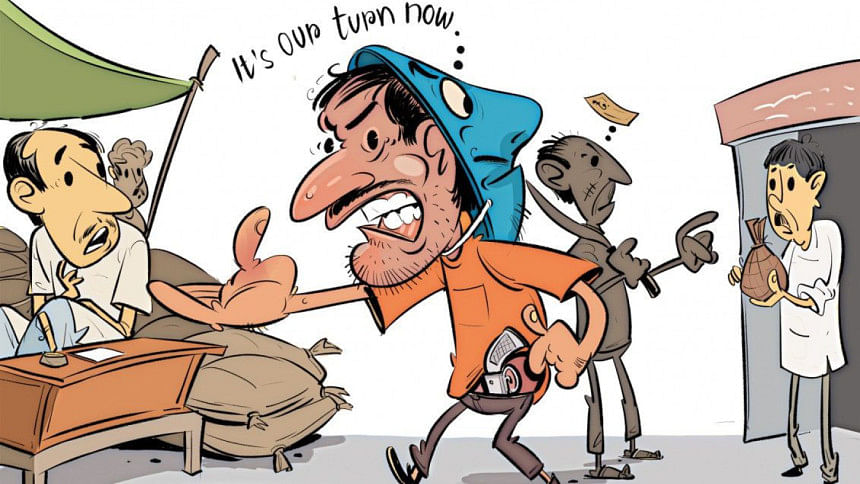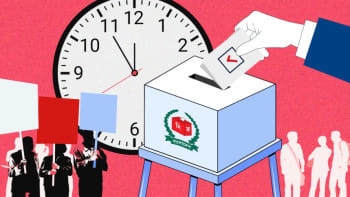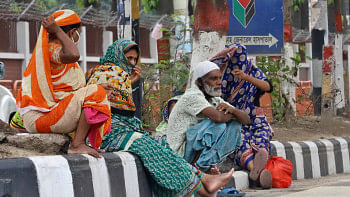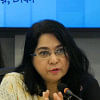How extortion is strangling businesses

Last week, I was chatting with my friend Shuvro, who had just come back from Indonesia for a short visit to celebrate Eid in Bangladesh. I asked him if he had noticed any changes in Dhaka while he was away. This was his first visit after the July uprising. Shuvro, a businessman, said ruefully, "Well, it is tough to do business here now because the incidence of chandabaji (extortion) has increased."
I knew what he meant. I have seen newspaper reports about the prevalence of chandabaji (which is a genteel word for extortion). One can hardly open a Bangla newspaper without coming across a news item on the ferocity of this practice at bus stations, kitchen markets, and other transport hubs.
The scourge of chandabaji has been eating away at business profits and also depleting the take-home wages of workers. Shuvro said that he saw the extortionists operating through their agents or collectors, known as "linemen," in all the major inter-district bus terminals located in the busiest areas of the capital—Gabtoli, Sayedabad, and Mohakhali.
The situation is even worse outside Dhaka. It manifests itself under different names and forms: tax, fees, contribution, fundraising, crowdsourcing, rent-seeking, crowdfunding, etc.
At a recent conference, Taskeen Ahmed, president of the Dhaka Chamber of Commerce and Industry (DCCI), declared, "Extortion has become an abscess for businesses. Even now, businesspeople cannot operate without fear."
Chandabaji is a form of corruption and affects poorer people more severely. In a recent book, David Jackman of Oxford University, who has years of research experience in the slums and informal labour markets of India and Bangladesh, provides a fascinating account of the modus operandi of extortionists in Kawran Bazar, a major marketplace in Dhaka.
The book, entitled Syndicates and Societies: Criminal Politics in Dhaka, based on Jackman's socio-anthropological work, also sheds light on the role of syndicates in crime and politics, "revealing the world of the extortionist."
Jackman is unequivocal in his critique of the major political parties, including Awami League and Bangladesh Nationalist Party, for sustaining the operations of the extortion network and how it adversely affects both business and the working class.
Since coming to power last August, the interim government has been working to address corruption and has taken measures to reduce the influence of power brokers in national politics. However, it soon became clear that various elements of the groups dominating the current political scene have taken over the reins from the AL extortionists. In the name of "levy," "collection," or "contribution," the new operators of various scams are resorting to extortion and exploiting vulnerable populations.
A prominent local daily reported that an investigation by an intelligence agency found that local influential figures and political party leaders, especially those linked to the BNP, are involved in extortion. In the past, AL members used various tools such as tokens, receipts, and stickers for extortion. But the new extortionists have introduced a novel method to avoid the risk of detection.
An alarming story in September 2024 gained national prominence. Activists aligned with the BNP took control of the Shimulia ferry terminal, the fish market, and trawler docks at Lauhajang in Munshiganj, allegedly by threatening and assaulting the rightful leaseholders.
Various reliable sources confirmed that, in Bangladesh, fundraising cartels have created a menace, raising concerns that these forces could be engaged in the potential misuse of funds. These campaigns might falsely claim to be raising money for a specific cause or exaggerate the needs of Bangladesh, potentially leading to scams.
The role of organised crime in fundraising was confirmed by a 2023 study funded by the US government. The "Organised Crime Index," an innovative tool designed to measure levels of organised crime in a country and assess its resilience to such activity, identified several rackets and syndicates engaged in nefarious activities.
Researchers concluded that organisations are not transparent about how donated funds are used or distributed in Bangladesh, raising concerns about accountability and the effective use of resources.
Fundraising efforts might be used to support specific political or ideological agendas within Bangladesh, potentially undermining genuine humanitarian efforts and exacerbating social divisions.
Some individuals or groups might exploit the vulnerability of people in Bangladesh by creating false narratives or misrepresenting their needs to raise funds for personal gain.
Sumon Howlader, president of the Bangladesh Poultry Association, said extortion was a major reason for the price hike of eggs and chickens.
The prevalence of extortion fees has been cited as a reason why small and medium businesses in Bangladesh are not willing to pay income tax, and these fees also contribute to high production costs in the country.
Dr Abdullah Shibli is an economist and employed at a nonprofit financial intermediary in the US. He previously worked for the World Bank and Harvard University.
Views expressed in this article are the author's own.
Follow The Daily Star Opinion on Facebook for the latest opinions, commentaries and analyses by experts and professionals. To contribute your article or letter to The Daily Star Opinion, see our guidelines for submission.

 For all latest news, follow The Daily Star's Google News channel.
For all latest news, follow The Daily Star's Google News channel. 








Comments